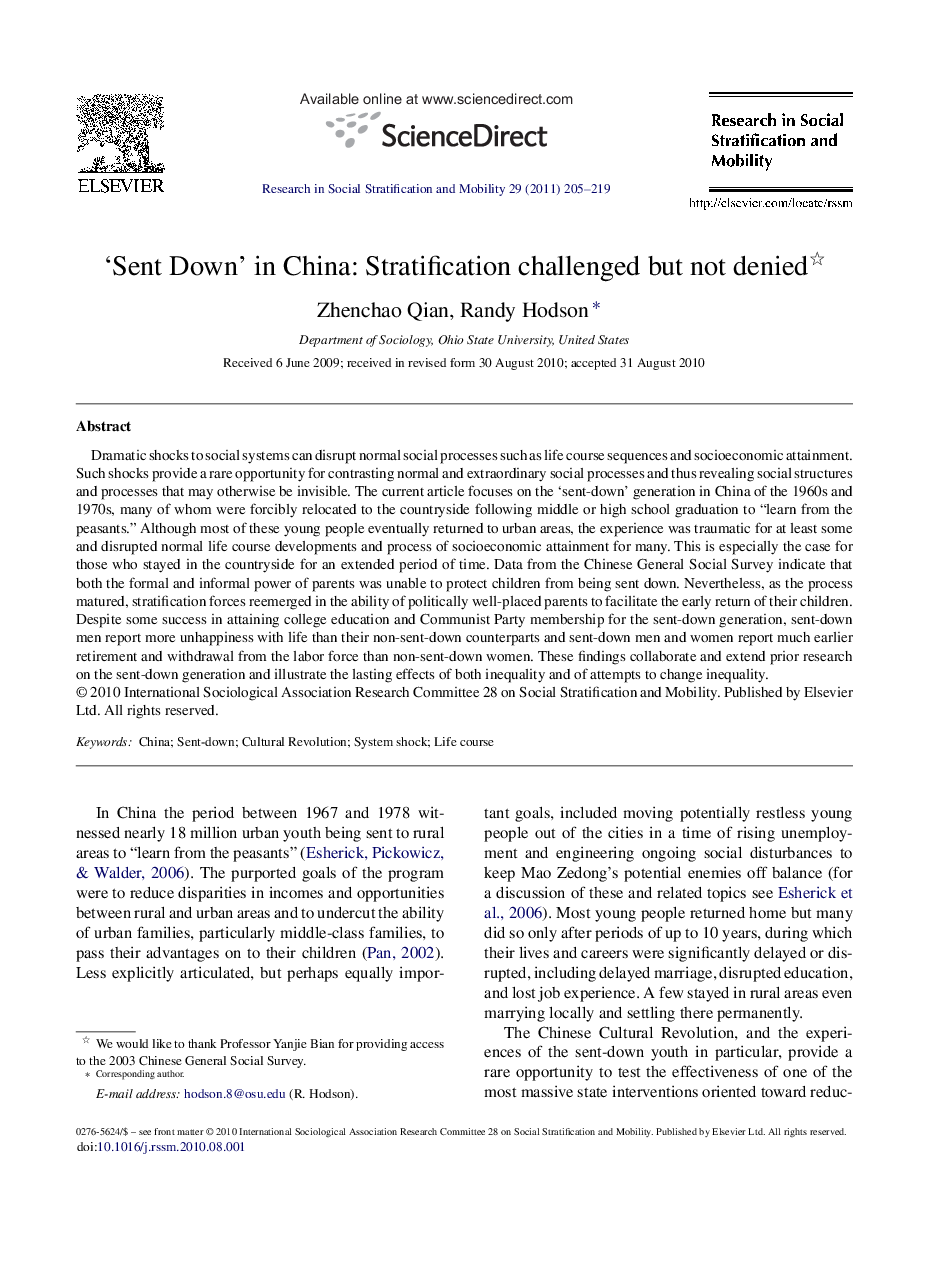| Article ID | Journal | Published Year | Pages | File Type |
|---|---|---|---|---|
| 999629 | Research in Social Stratification and Mobility | 2011 | 15 Pages |
Dramatic shocks to social systems can disrupt normal social processes such as life course sequences and socioeconomic attainment. Such shocks provide a rare opportunity for contrasting normal and extraordinary social processes and thus revealing social structures and processes that may otherwise be invisible. The current article focuses on the ‘sent-down’ generation in China of the 1960s and 1970s, many of whom were forcibly relocated to the countryside following middle or high school graduation to “learn from the peasants.” Although most of these young people eventually returned to urban areas, the experience was traumatic for at least some and disrupted normal life course developments and process of socioeconomic attainment for many. This is especially the case for those who stayed in the countryside for an extended period of time. Data from the Chinese General Social Survey indicate that both the formal and informal power of parents was unable to protect children from being sent down. Nevertheless, as the process matured, stratification forces reemerged in the ability of politically well-placed parents to facilitate the early return of their children. Despite some success in attaining college education and Communist Party membership for the sent-down generation, sent-down men report more unhappiness with life than their non-sent-down counterparts and sent-down men and women report much earlier retirement and withdrawal from the labor force than non-sent-down women. These findings collaborate and extend prior research on the sent-down generation and illustrate the lasting effects of both inequality and of attempts to change inequality.
